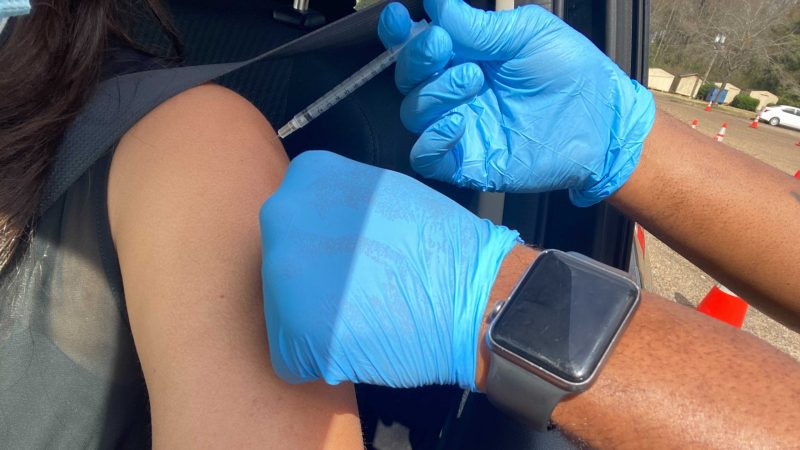Offering A Carrot Won’t Get People Vaccinated, Maybe It’s Time To Talk About The Stick, Health Official Tells Birmingham Council
COVID-19 cases are on the rise in Jefferson County, and offering incentives to persuade people to get vaccinated does not seem to be working, a public health official warned the Birmingham City Council on Tuesday.
Dr. David Hicks, deputy health officer and COVID-19 incident commander at the Jefferson County Department of Health, said new daily coronavirus cases had increased fivefold in the past month.
“In our county, we’re averaging 75 new COVID cases per day,” he said. “If you go back a month ago, we were averaging 13 cases a day … The trajectory is troubling. Every week we’re seeing a doubling of the cases of COVID-19 being identified.”
Thirty-six percent of Jefferson County residents are fully vaccinated, Hicks said, while 45% have received at least one dose of the vaccine. According to the Alabama Department of Health, 94% of all COVID hospitalizations and 96% of all COVID deaths have been among people not fully vaccinated. About 20% of Jefferson County’s population is reluctant to get the vaccine, Hicks said.

Dr. David Hicks' LinkedIn Page
Dr. David Hicks, deputy health officer and COVID-19 incident commander at the Jefferson County Department of Health
The council has mulled incentivizing vaccines, though some officials have dismissed such programs as unnecessary. Councilors have offered concert tickets and tickets to a soccer game as incentives for people to get vaccinated. On Tuesday, Hicks told councilors that he thought incentive programs would have limited effectiveness.
“I’m not sure we can move people who have dug in their heels and said, ‘I’m not getting vaccinated no matter what you do,’” he said, suggesting that businesses may need to begin mandating vaccinations for their workers.
“I don’t have the answer for what else to do,” he said. “You have the carrot approach and the stick approach. The carrots are those incentives, and the stick approach is, does a business say you have to [be vaccinated to work there]? … That’s a national conversation now: do we have to try that stick approach?”
The Alabama Department of Public Health did recently launch an incentive program to get 13- to 29-year-olds to take vaccines and create Tik Tok videos for a chance to win $250 gift cards.
COVID cases are on the rise across the country, largely due to the virus’ Delta variant, which studies say is stronger and more contagious than the original.
In Alabama, the state with the lowest percentage of fully vaccinated residents, the daily number of new cases is nearly seven times higher than it was on July 5. Tuesday, the number of new cases jumped even more.
40 years after ‘Purple Rain,’ Prince’s band remembers how the movie came together
Before social media, the film Purple Rain gave audiences a peak into Prince’s musical life. Band members say the true genesis of the title song was much less combative than the version presented in the film.
Park Fire in California could continue growing exponentially, Cal Fire officer says
Cal Fire has confirmed that over a hundred structures have been damaged in the Park Fire, which grew overnight near Chico, Calif. Difficult firefighting conditions are forecast through Friday night.
Checking in with Black voters in Georgia about the election, now that Biden is out
Some voters who could be key to deciding who wins Georgia. What do they think about Vice President Harris becoming the frontrunner in the race to be the Democratic nominee?
Tahiti’s waves are a matter of ‘life and death’ for surfing Olympics
Tahiti's Teahupo'o wave has a slew of riders for the Paris 2024 Olympics. NPR finds out why it's called one of the most dangerous waves.
Researchers are revising botanical names to address troubling connotations
Since the mid-1700s, researchers have classified life with scientific names. But some of them have problematic histories and connotations. The botanical community is trying to tackle this issue.
A spectacular opening ceremony wowed a global audience despite Paris’ on-and-off rain
The Paris Olympics opening ceremony wowed Parisians, fans and most everyone who was able to catch a glimpse of thousands of athletes floating down the Seine to officially begin the Games.



